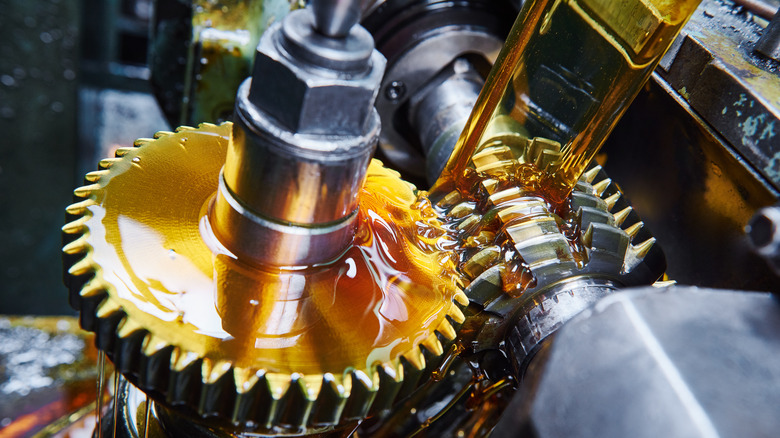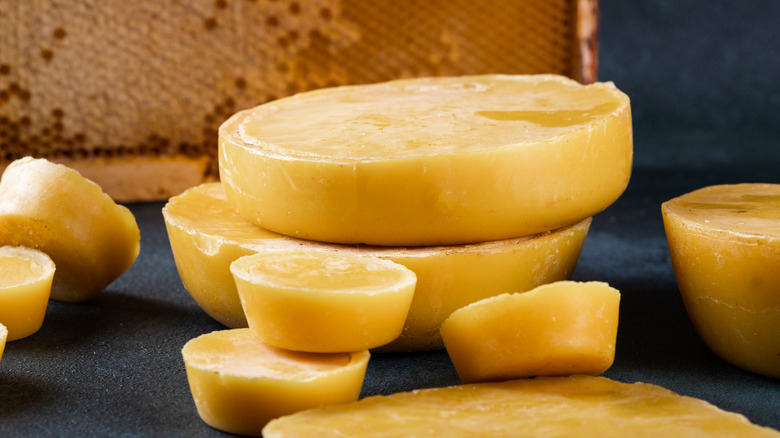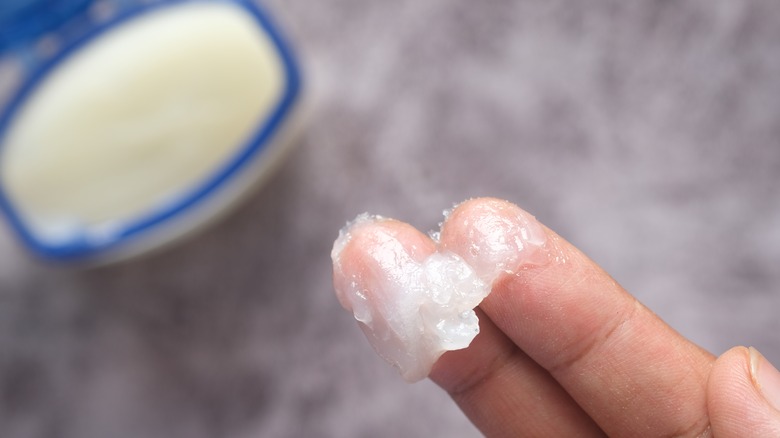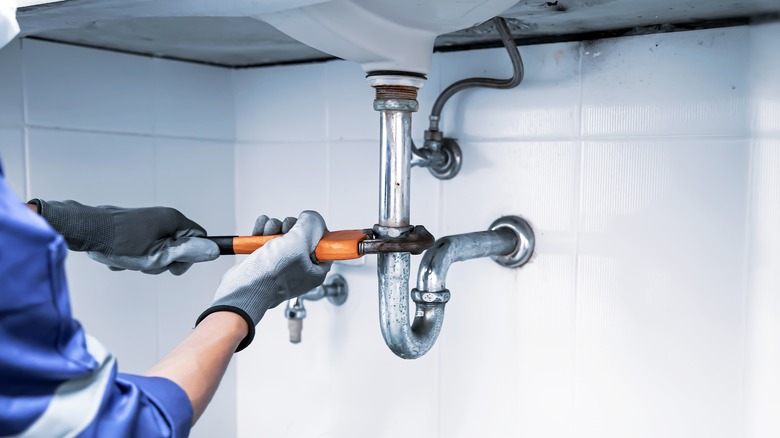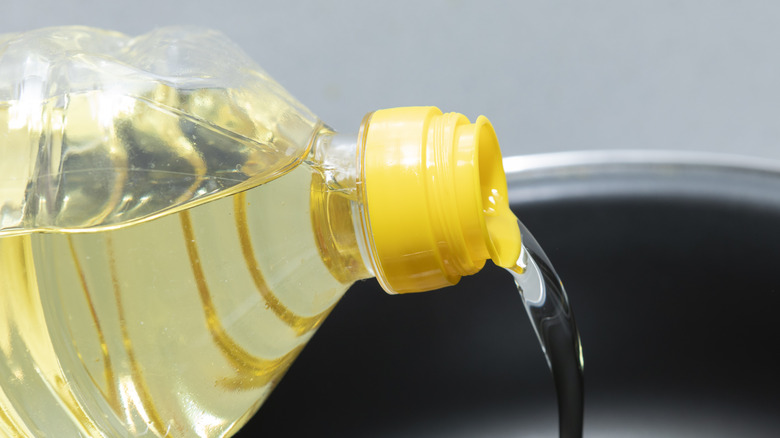5 Common WD-40 Substitutes That Will Work Great In A Pinch
WD-40 Multi-Use spray, as the name no doubt implies, is one of the most universally useful things you could keep in your garage or toolbox. It's excellent for degreasing, lubricating, and removing errant liquid, which is why mechanics and hobbyists get plenty of use out of the stuff. Unfortunately, as is the case with most multi-useful products, that does tend to mean that you'll find yourself with an empty can sooner rather than later.
If you regularly use WD-40, you probably buy cans in bulk, but even those will run out eventually. In all likelihood, it'll be at a really inopportune moment when you need something loosened or degreased. Still, while WD-40 is the most useful utility spray on the block, that doesn't mean it's the only option out there. If you're completely tapped on WD-40, there are various items and products you can utilize as a quick substitute, at least until you can make a trip to the hardware store.
Beeswax
Got some screws or bolts that aren't quite turning correctly? Try a gift from our buzzy yellow friends, beeswax. Beeswax is a great solid lubricant, loosening up stuck metal and covering it in a protective layer that makes it more resistant to further corrosion. Beeswax also works great for moving wooden parts, like the cabinets and drawers in your kitchen. One benefit beeswax actually has over WD-40 is that it's non-toxic, so it can be safely applied to surfaces where you handle food, like your kitchen counter. Plus, cleaning up is easier and doesn't leave any odors.
In the event that you don't have any standalone beeswax handy, you can also get a similar effect by rubbing an unlit wax candle on the surface you want to lubricate. As long as the candle isn't too old and crusty, a little bit will rub off to create a slick, protective layer.
Petroleum jelly
Got any Vaseline in the bathroom for your lips? Well, chapped lips aren't the only thing it can loosen up. Petroleum jelly is a good semi-solid solution for metal, plastic, and rubber parts. Just grab a little bit from the container with your fingers and rub it right on. In addition to lubrication, petroleum jelly is great for creating protective coatings on tools that may regularly be exposed to water or other sources of corrosion.
What's especially nice about petroleum jelly compared to other lubrication options is its sticking power. Thanks to its semi-solid nature, petroleum jelly will stick fast to whatever you apply it to, unlike WD-40's liquid makeup, which can drip and leak all over the place after application. It may be a little goopy afterward, necessitating some cleanup, but it's non-toxic and won't attract any pests, so it's okay if things get a little messy.
Plumber grease
Is the project you're working on plumbing-centric? Good news, there's a product designed just for that – plumber grease. Plumber grease is a special product you can get at most hardware and plumbing supply stores. Whether you've got a sink handle that refuses to budge or a rubber stopper that won't fit its hole, plumber grease will loosen things up.
This goopy chemical is specially designed for rubber and plastic and is certified as waterproof and heat-resistant. Plumber grease also helps to form a protective seal in the threads of moving parts, ensuring they remain watertight and smooth. If you're working on something with moving plastic or rubber components, even if it's not in the bathroom, plumber grease will work fine. For instance, if you need to loosen up a boiler valve or the rubber chains in a garage mechanism, it can get the job done, though you should make sure you follow the directions on the tube to the letter when using it.
Mineral oil
Do you use mineral oil to help soothe rashes or other skin conditions? If you've got some to spare, you can use it as a lubricant. Thanks to its petroleum-based makeup, mineral oil is a natural degreaser, great for loosening up wood, plastic, and metal. Fun fact, mineral oil is frequently used as a cooling fluid in industrial equipment for this very reason.
Mineral oil can actually be your secret weapon if you're a gardening enthusiast, as it's fantastic for gardening tools like shears, shovels, trowels, and more. Since it's safe for both wood and metal, you can use it to clean the entirety of a tool, handle and all, and give it an extra coating to defend against rust on the metal components and decay on the wooden components. If you've got any fancy tools with leather components, mineral oil is safe to use on them as well, and in fact, it actually makes an excellent leather conditioner.
Vegetable oil
Have you completely exhausted all other options and are in desperate need for some kind of lubricant, any kind at all? Then check your pantry because we've got one last trick up our sleeve – vegetable oil. This kitchen staple is cheap and widely available, so it's an effective last resort for lubricating metal and plastic, especially if said metal or plastic is also in your kitchen. Since vegetable oil is used in cooking, that means it's safe to use around pets and children — it won't hurt them if they accidentally eat it.
So why is vegetable oil a last resort? Because if it's left for a while, it'll get gross. Oil products tend to solidify when left out for an extended period, and once they do, they become sticky and start attracting dust, dirt, hair, and other assorted grossness. Vegetable oil is best used on things that only need to be loosened once, and you should clean it immediately after.
